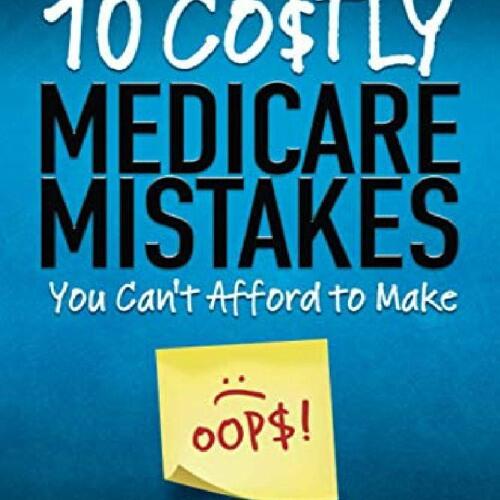
How to Avoid the 10 Most Costly Medicare Mistakes
From enrollment pitfalls to coverage misunderstandings, there are various areas where beneficiaries can inadvertently make costly errors. One area in particular is Medigap vs Medicare Advantage and understanding the difference between the two. This article will discuss the ten most common Medicare mistakes and provide essential tips on how to avoid them, ensuring beneficiaries maximize their benefits and make well-informed decisions.
Missing Initial Enrollment Period (IEP)
One of the costliest mistakes is missing the Initial Enrollment Period (IEP), which begins three months before your 65th birthday month and lasts three months after. Failing to enroll during this window can result in late enrollment penalties, leading to higher premiums for Part B and Part D coverage in the future. To avoid this mistake, mark your calendar and proactively apply for Medicare during your IEP.
However, it's important to note that if you have creditable employer coverage, you can delay Medicare past your IEP with no penalty.
Overlooking Medigap Open Enrollment
Medigap plans offer supplemental coverage to fill the gaps in Original Medicare, but beneficiaries should consider enrolling during their six-month Medigap Open Enrollment period. Missing this window may lead to underwriting in the future, potentially resulting in higher premiums or even denial of coverage based on your health status. Take advantage of the Open Enrollment period to secure the best Medigap policy for your needs.
There can be certain circumstances where underwriting is not required. For example, a handful of states allow you to change plans during certain times of the year without answering health questions.
Not Reviewing Part D Plans Annually
Prescription drug needs change over time, and sticking with the same Part D plan without reviewing it annually can lead to paying more for medications. The formulary and costs of Part D plans can vary, so compare your current plan with others during the Annual Enrollment Period (AEP) to ensure you have the most cost-effective coverage.
Choosing the Wrong Medicare Advantage Plan
Medicare Advantage plans (Part C) offer different networks, costs, and covered services. Picking the wrong plan without considering your doctors, prescription drugs, and health needs can lead to unexpected out-of-pocket expenses. Before enrolling, carefully review the plan's details to ensure it meets your specific requirements and that your doctors accept it.
Not Understanding the "Donut Hole" (Coverage Gap)
The Part D coverage gap, also known as the "Donut Hole," can catch beneficiaries off guard. Not understanding this phase of Part D coverage could result in higher drug costs. Be aware of the Donut Hole and consider strategies to manage medication costs during this period, such as using generics or exploring patient assistance programs.
Not Utilizing Preventive Services
Medicare offers various preventive services at no additional cost, such as screenings, vaccinations, and wellness exams. Neglecting these services can lead to undetected health issues and higher healthcare expenses in the long run. Stay proactive about preventive care to maintain your health and catch potential problems early.
Believing Medicare Covers Everything
Assuming that Medicare covers all healthcare costs is a costly misconception. Medicare has deductibles, copayments, and coinsurance, which beneficiaries pay. Budgeting for these expenses and considering supplemental coverage, like Medigap or Medicare Advantage plans, is essential to manage potential out-of-pocket costs.
Ignoring Late Enrollment Penalties
Enrolling late in Medicare Part B or Part D can result in late enrollment penalties that increase your premiums permanently. Avoid these penalties by enrolling during the appropriate enrollment periods and seeking guidance from a Medicare broker or counselor if needed.
Not Reevaluating Coverage After Life Changes
Life changes, such as moving to a new state or experiencing changes in health status, can impact your Medicare coverage needs. You must reevaluate your coverage after significant life changes to avoid enrolling in plans that no longer suit your situation. Regularly review your coverage and adjust as necessary.
Not Seeking Professional Guidance
Medicare is complex, and making costly mistakes can be avoided by seeking professional guidance from Medicare brokers, counselors, or insurance agents. These experts can provide personalized advice, compare plans, and help you make well-informed decisions about your Medicare coverage.
Don't Make These Mistakes
Avoiding the ten most costly Medicare mistakes requires understanding the complexities of the program, being proactive, and seeking professional guidance when needed. By enrolling during the correct enrollment periods, reviewing your coverage annually, and staying informed about Medicare changes, you can maximize your benefits and avoid unnecessary financial burdens.
Take charge of your Medicare journey and make informed decisions to ensure you get the most out of your healthcare coverage. Remember, investing time and effort in understanding Medicare will lead to better financial and healthcare outcomes in the long run.